A Week in the Bush Vol. 514
on Sep 04, 2024The Msuthlu Pride have had an incredible time of late, ensuring their ever-growing cubs are well fed and their commitment to regularly feeding themselves also ensures that they produce nutritious milk for their young ones.
After tracking lions for a long time all over the western side of our reserve, we walked into the bush following the sounds of birds alarm calling, and we discovered a pride of lions feeding on a wildebeest kill. There was still plenty of meat left, and the females were dragging the carcass into thick vegetation, making it difficult for us to see the pride as they fed.
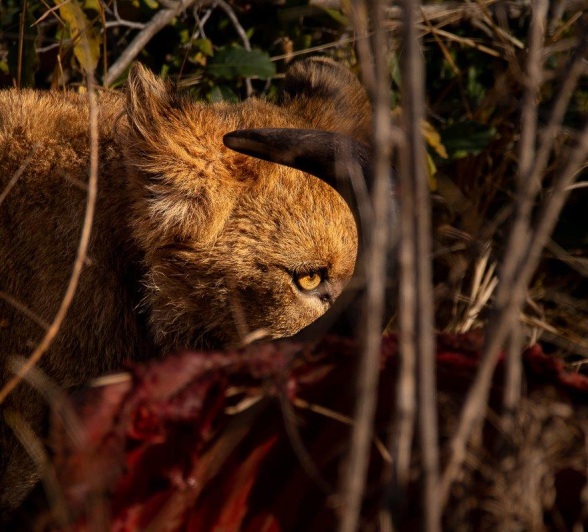
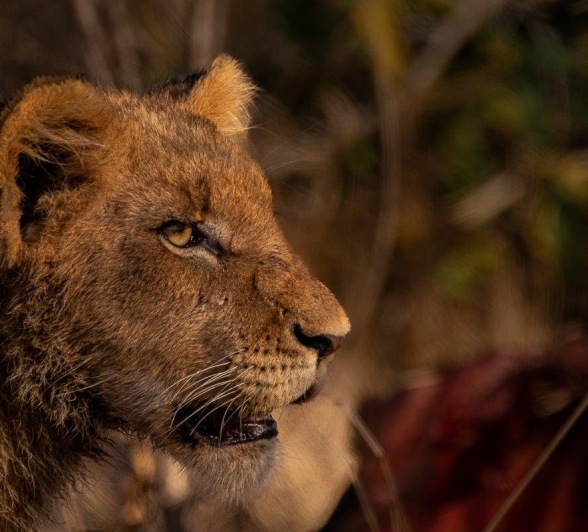
Two days later, and they’d managed to kill a waterbuck. It was not long since they had finished feasting on a wildebeest and now, they had secured another meal. The dedicated females in the pride, many of whom have young cubs, are doing a remarkable job of ensuring that their offspring are well-nourished.
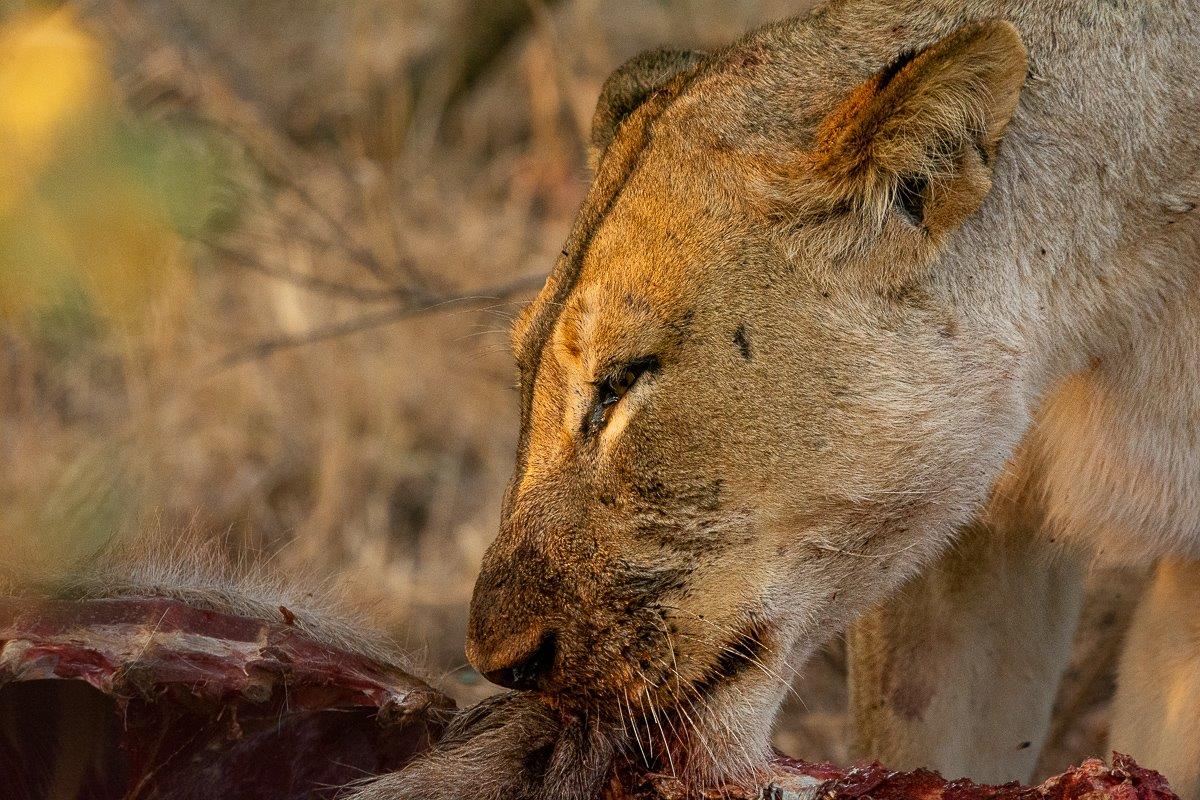
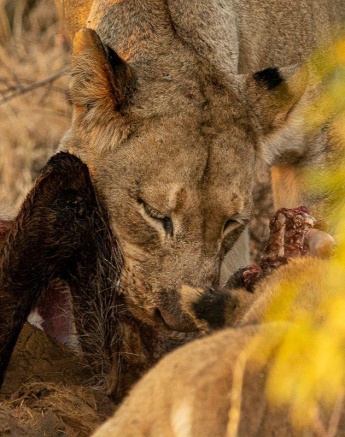
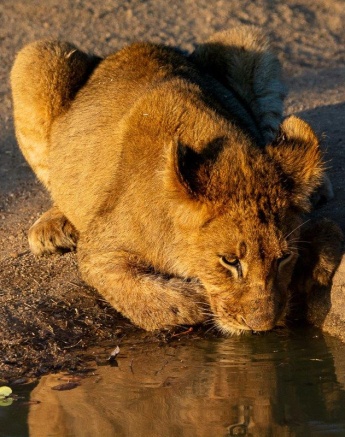
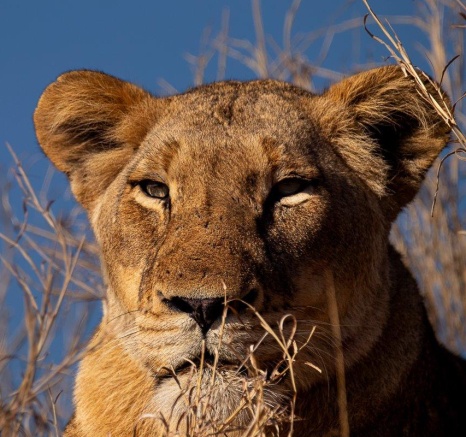
In the presence of the Gijima males, the pride managed to take down their biggest prize – a buffalo. Having male lions support the hunting in a pride is often a welcome addition to the pride to allow them to take down bigger prey such as a buffalo which will sustain the pride for a few days.
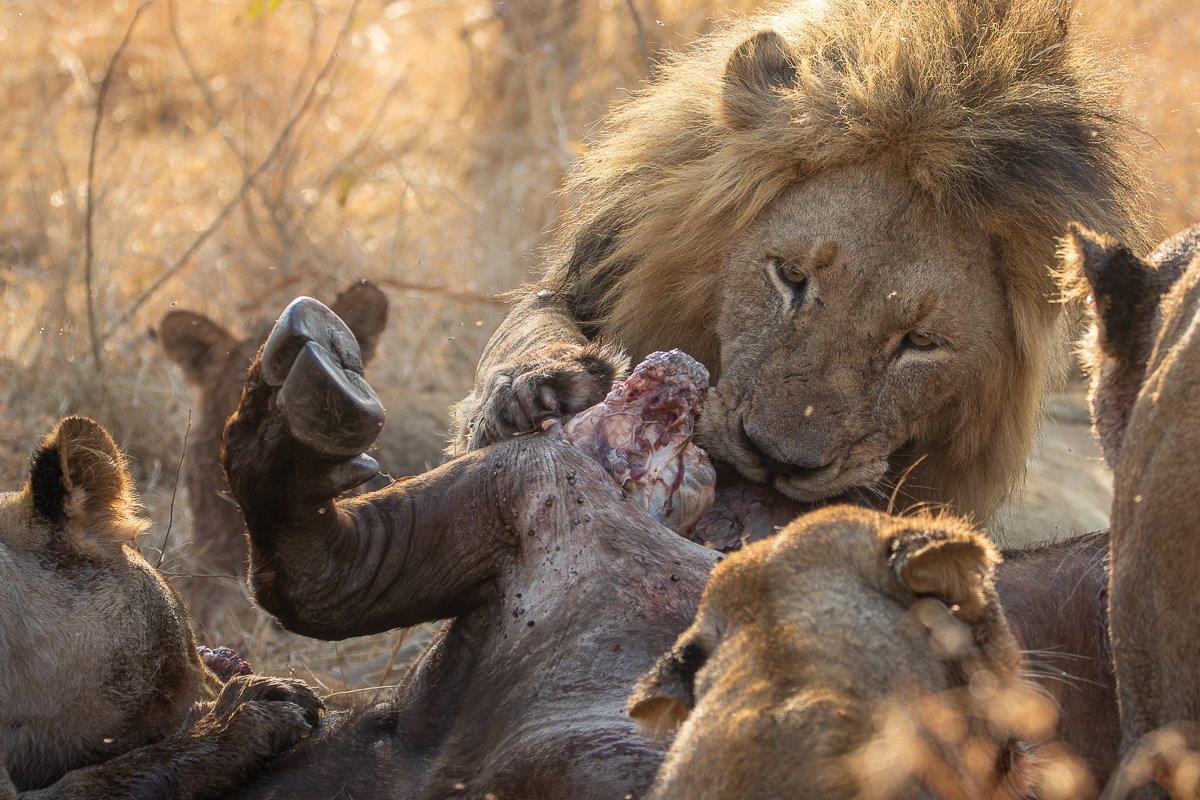
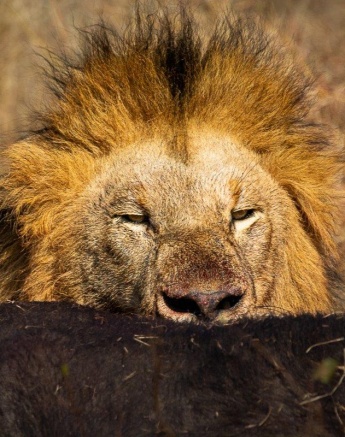
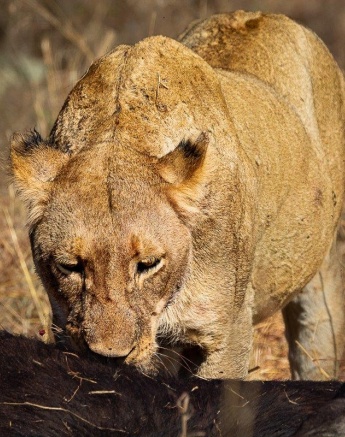
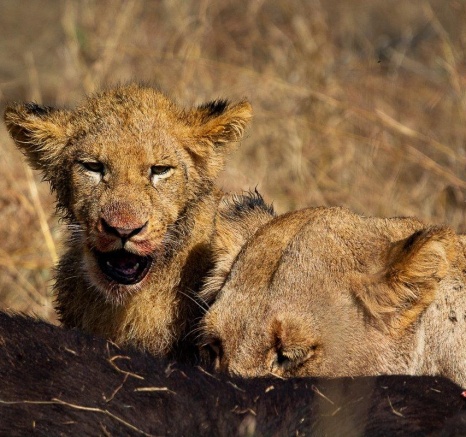
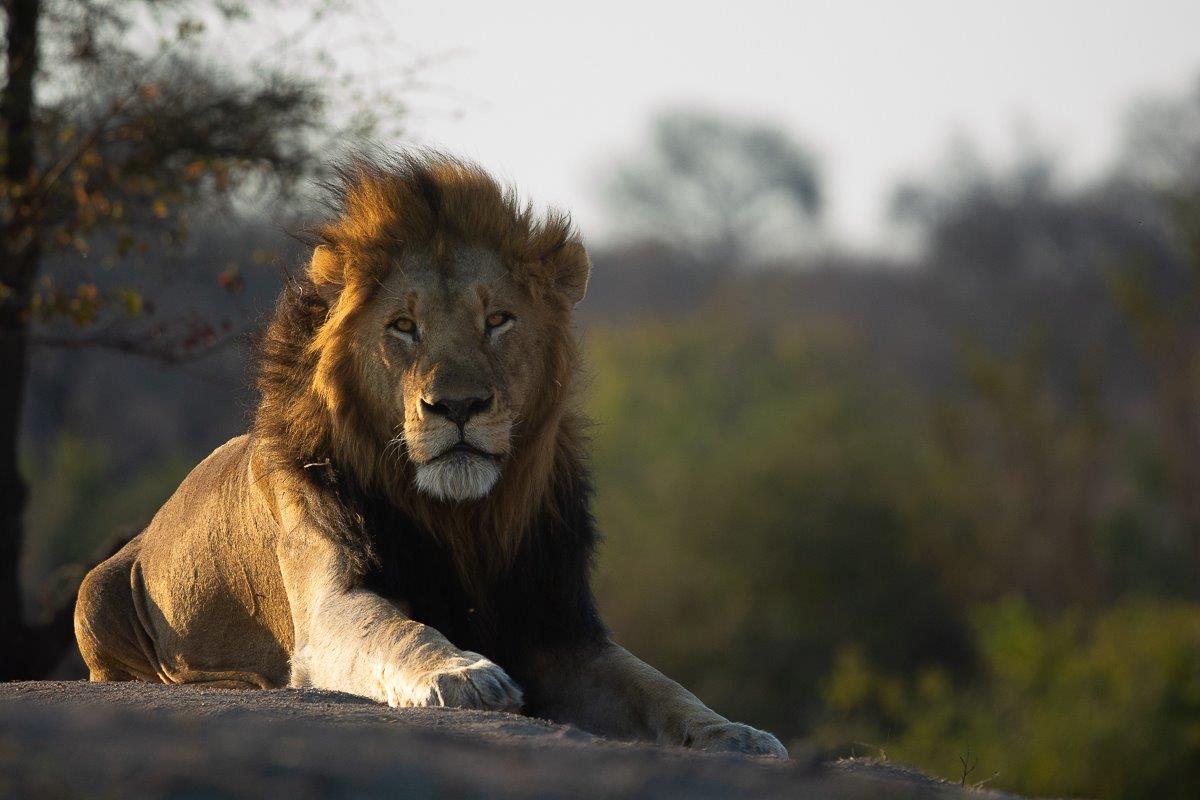
Our last sighting of them for the week was heartwarming and extremely special… The younger female also showed us her four new cubs who were well-hidden from the hyenas and any other danger.
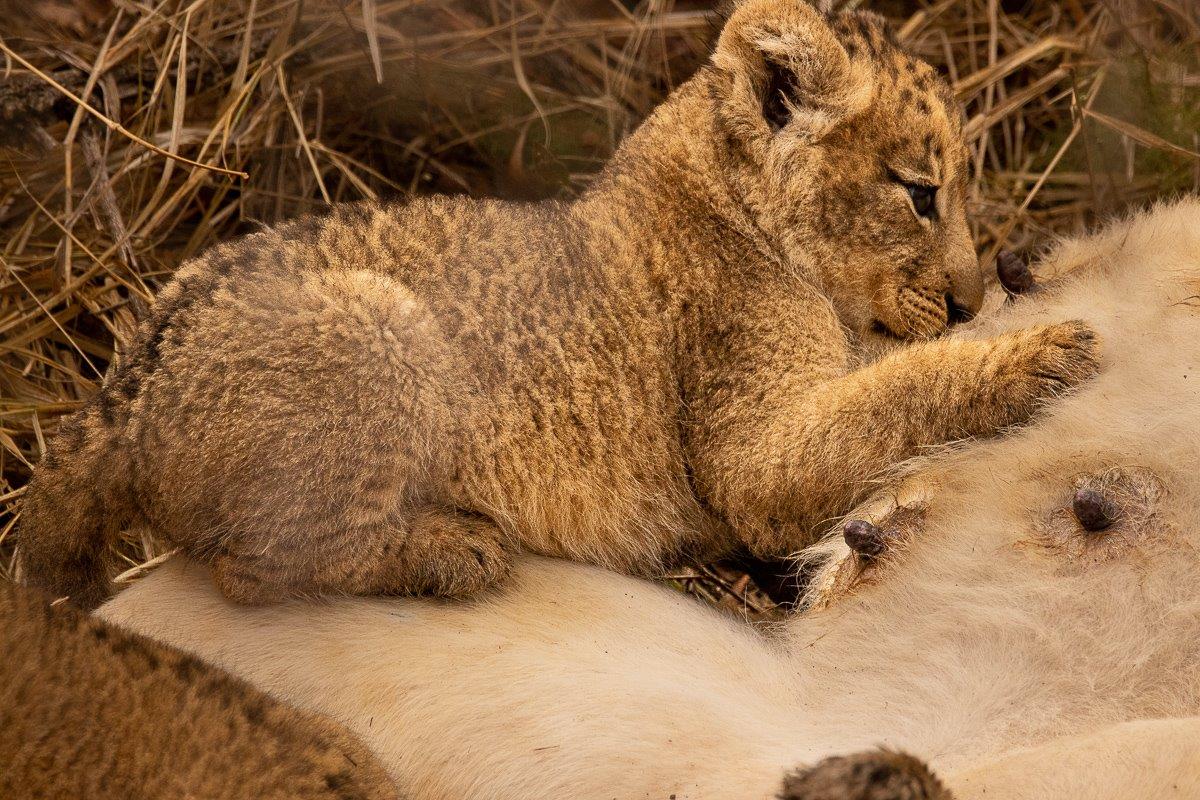
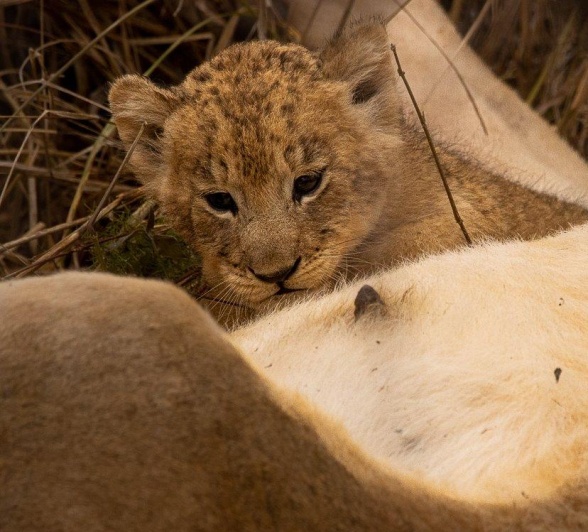
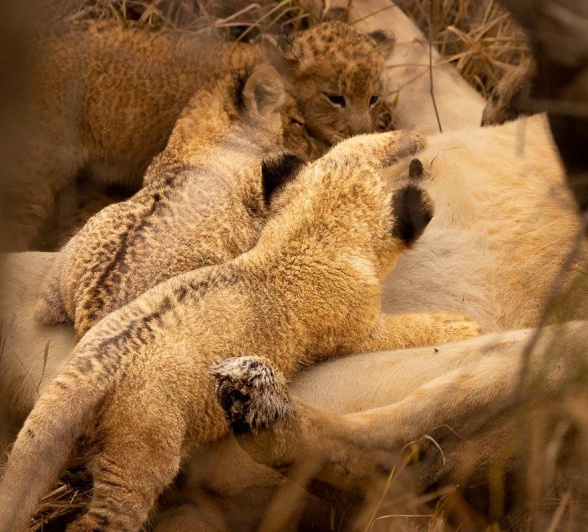
We spotted the majestic Mashaba female leopard as she strolled confidently along the road. Suddenly, her demeanour shifted, and she embarked on a hunt for a duiker concealed behind a termite mound. Despite her agility and determination, the duiker managed to evade her grasp. Nevertheless, Mashaba looks to be in peak physical condition.
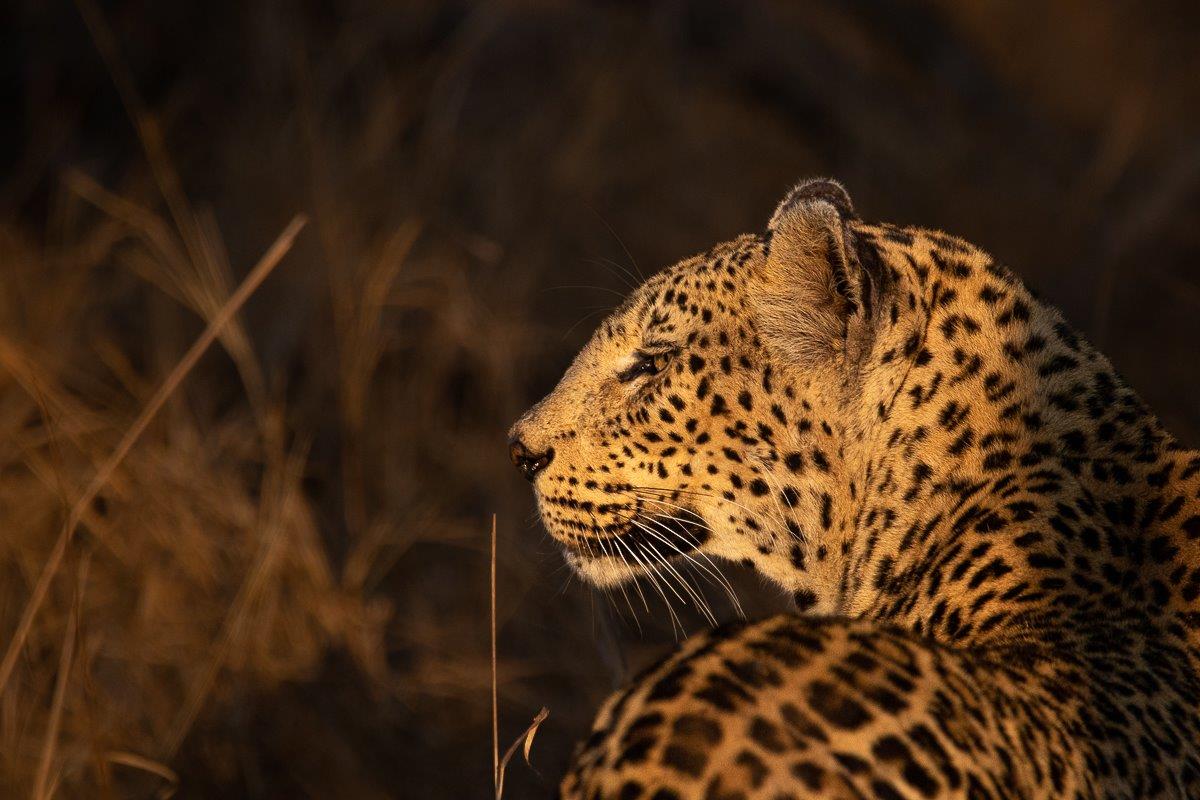
Two days later, we found her again. She led us to her duiker kill, which she had hoisted up a tree. She soon climbed the tree and rested near her kill. For a female leopard, a small antelope will provide enough food to last a while before making another kill.
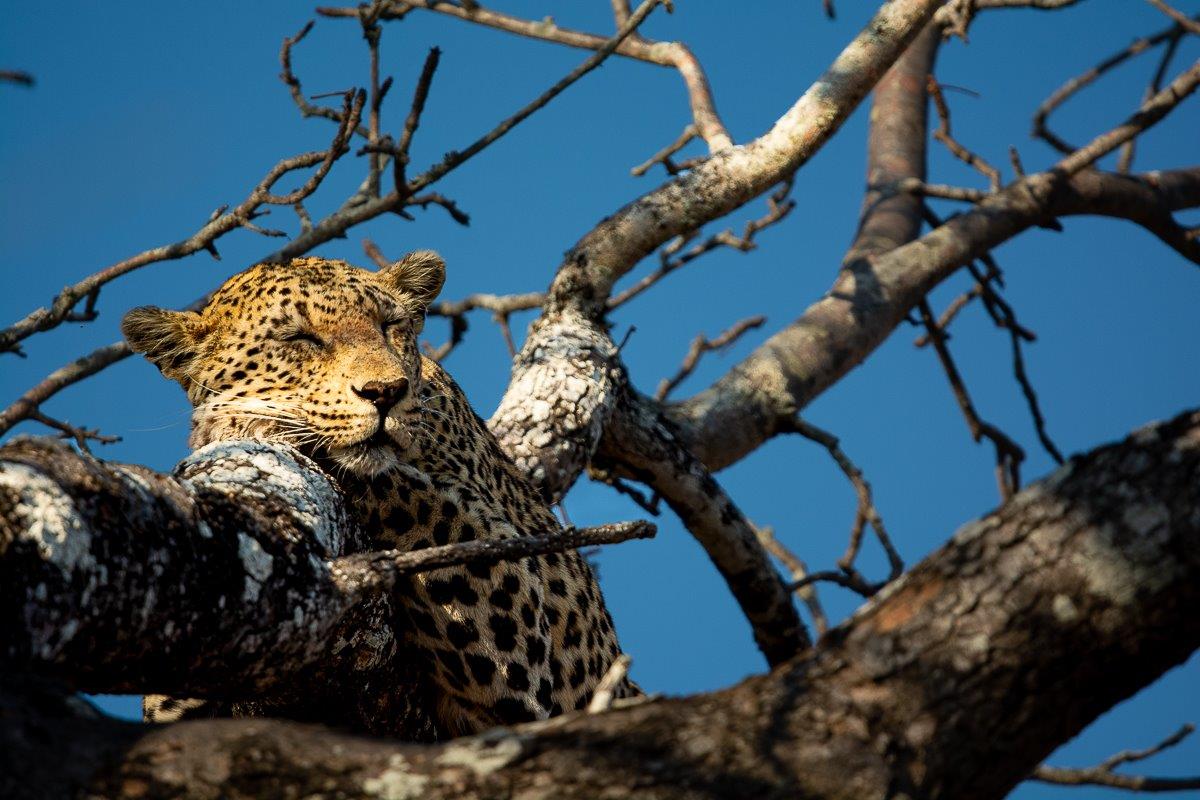
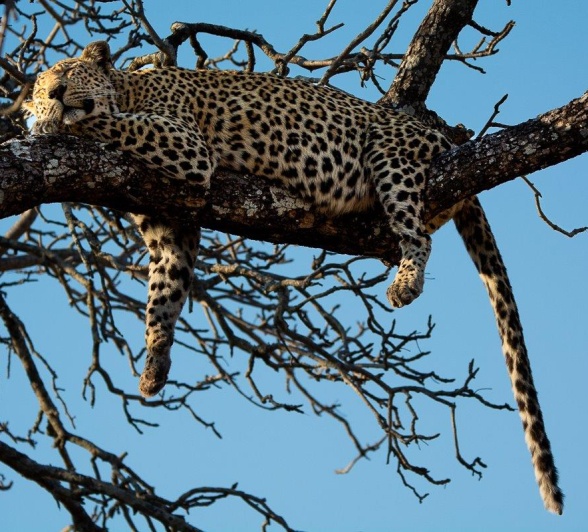
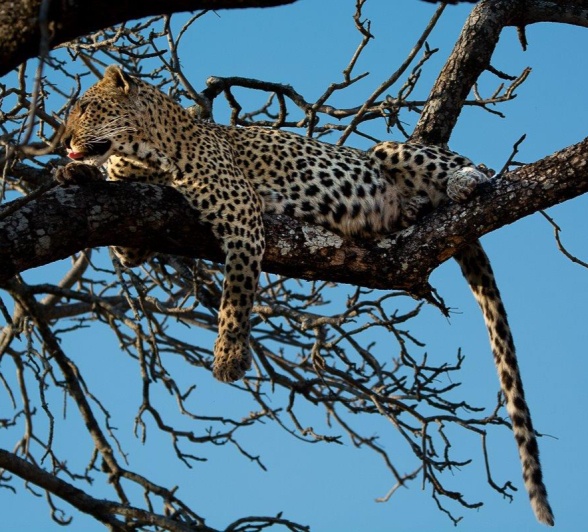
The Nottins male leopard was sleeping on a termite mound where he stayed for the duration of our safari. It seemed like he was trying to get some warmth from the mound on a cold day, but as we looked around, we realised that he was stalking some warthogs in a burrow on the other side of the termite mound.
Leopards are very patient, and they may wait for many hours until their prey is within striking distance to ensure a successful kill.
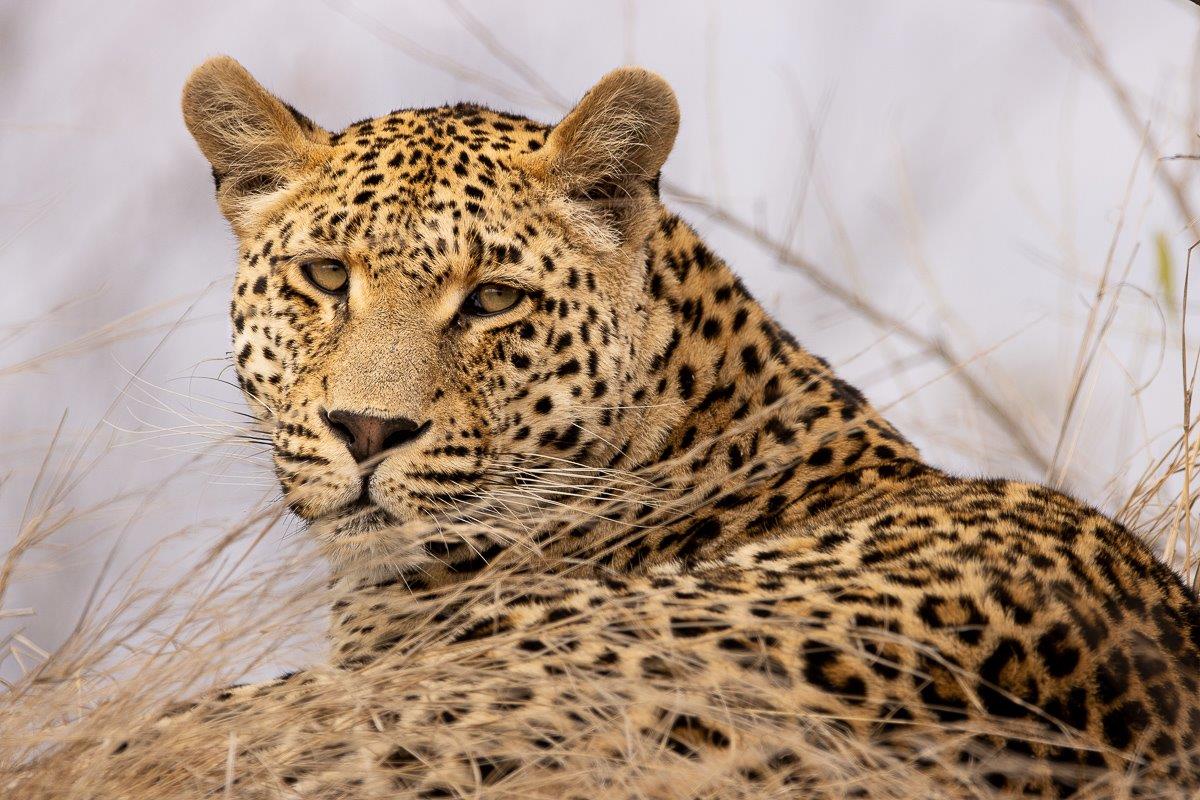
The Tengile female leopard was actively hunting, taking every chance she could with any prey she encountered. She tried to make the most of the light drizzle, but she wasn’t successful.
When a female leopard has a young cub, she must provide food regularly, seizing every hunting opportunity to increase the cub’s chances of survival.
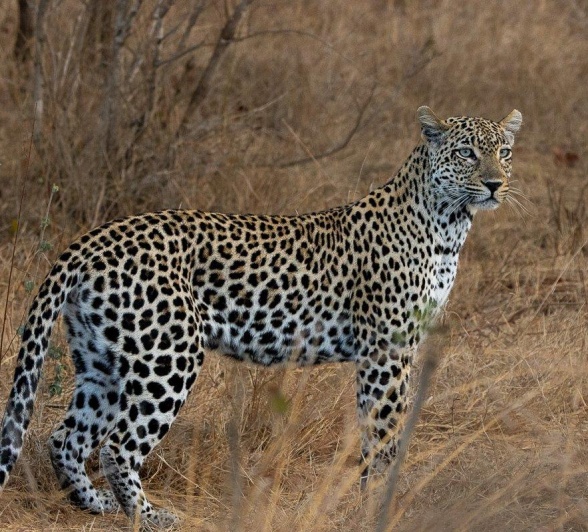
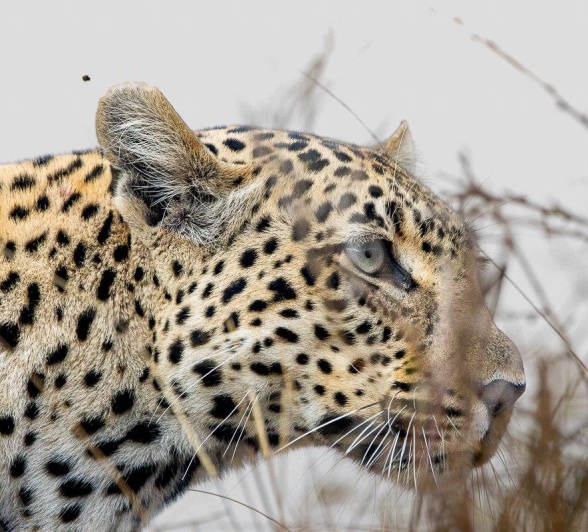
As we ventured into the afternoon safari, our eyes caught sight of this elusive animal. It rested gracefully under a tree, yet its attentive gaze never ceased to scan its surroundings. A herd of wildebeest approached, but the cheetah ignored them as they were too big to waste energy on. The cheetah, a master of daytime hunting, thrives in expansive open landscapes, allowing it to unleash its remarkable speed in pursuit of prey.
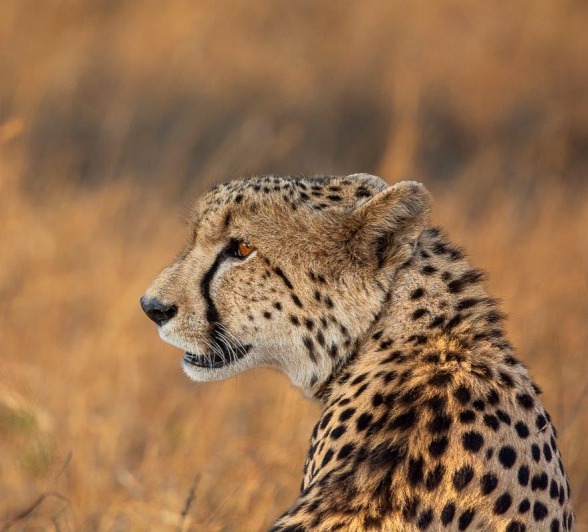
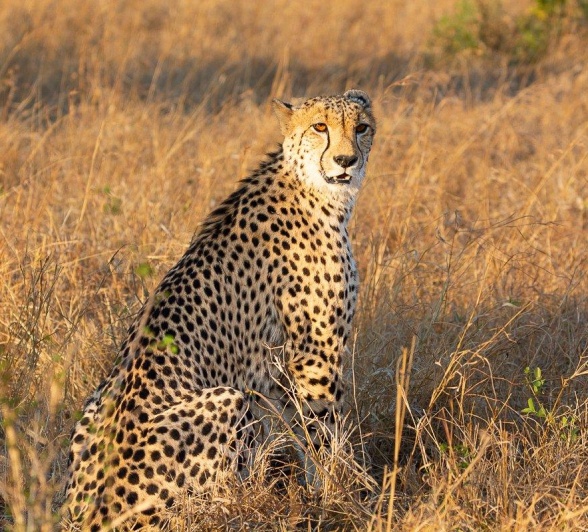
We discovered wild dogs in the eastern part of our reserve, and they were on the hunt. It's challenging to keep up with them as they dash across vast open and dense areas. We followed them for a while as they chased everything from wildebeest to impalas, even when the prey was aware of their presence. A common sight when wild dogs hunt is the presence of hyenas following them in anticipation of making a kill and getting some scraps.
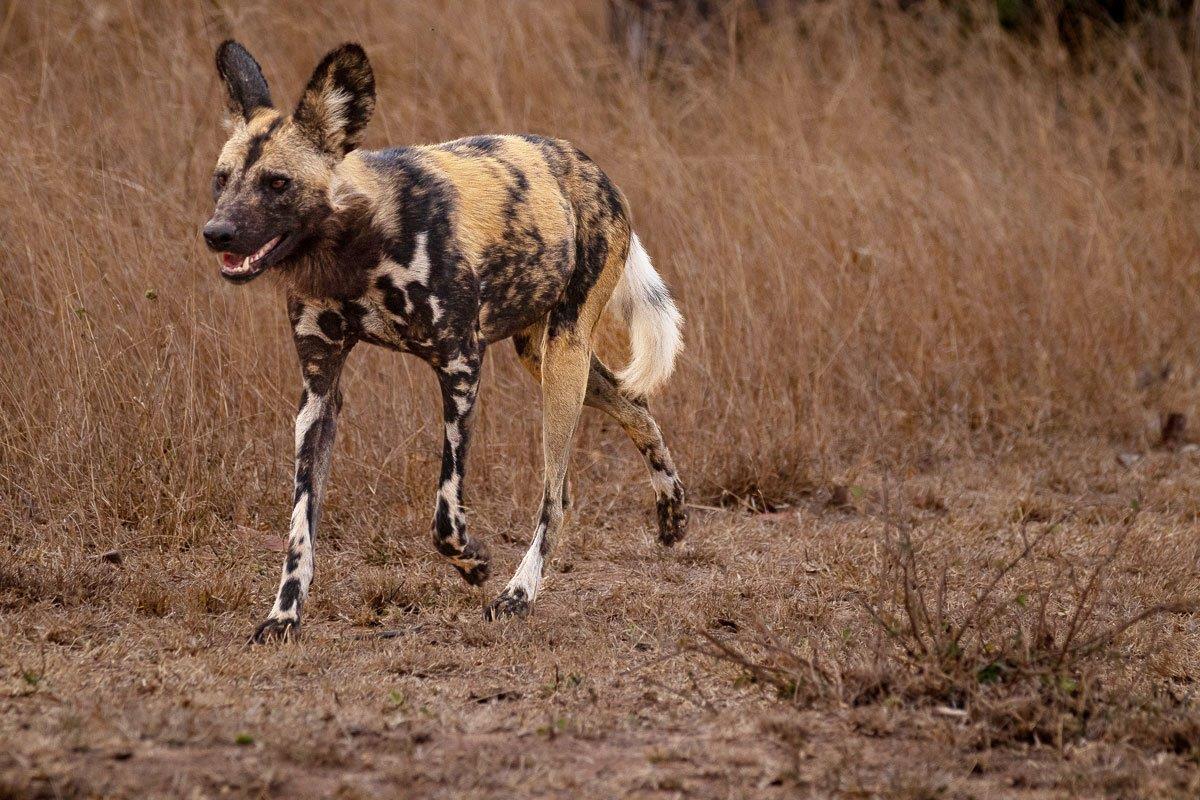
This dominant Blue wildebeest bull was slowly moving into the treeline for the night. Blue wildebeest often spend their days in the open plains, as it's their preferred habitat, before retreating to the treeline at night for safety. Being out in the open at night, these animals are often exposed to predators because their eyesight is not well adapted for nighttime.
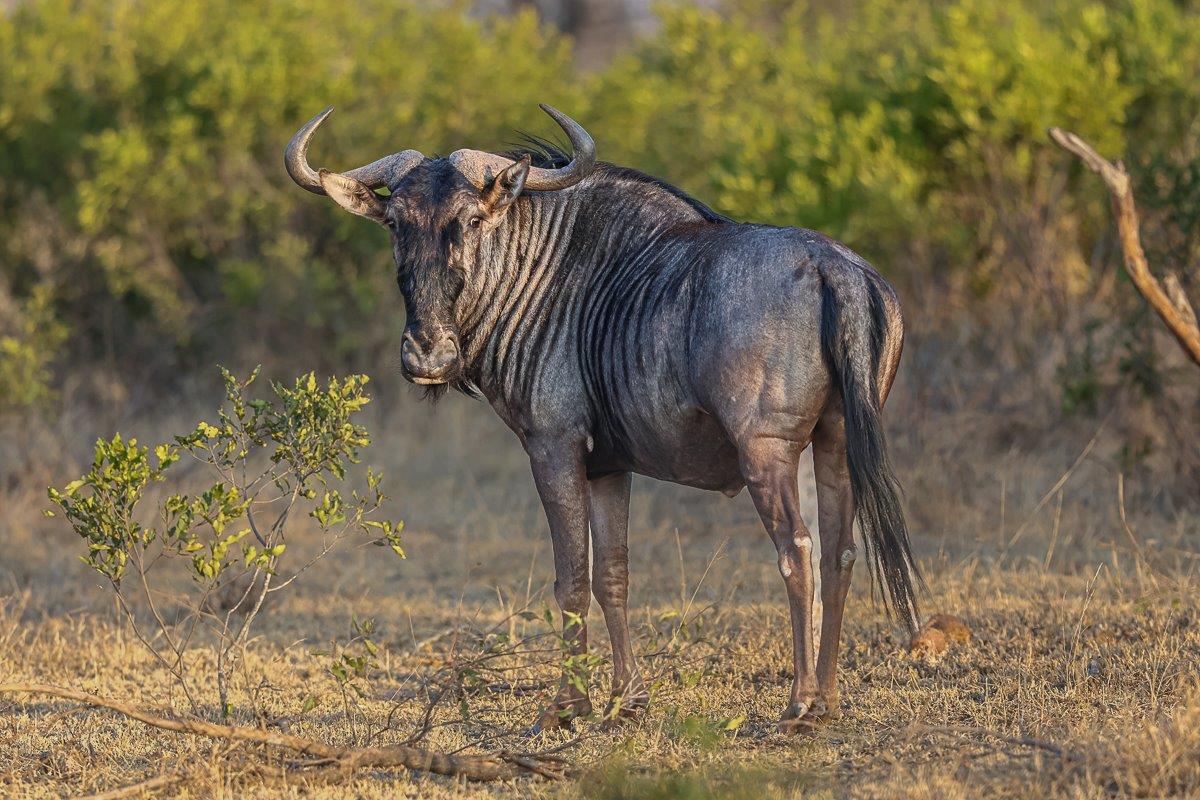
Giraffes have a flexible social structure, allowing individuals to come together or separate as needed. They can be part of a group, but they are also frequently solitary. Females are generally more social, often grouping with other females and their young for protection and social learning. Males are more solitary and may form loose associations with other males, especially when young. They engage in "necking," a combat behaviour to establish dominance. This flexible social structure allows giraffes to adapt to varying environmental conditions across their habitat.
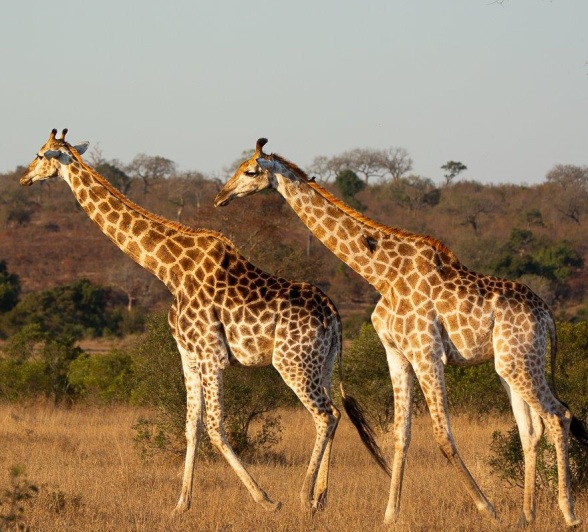
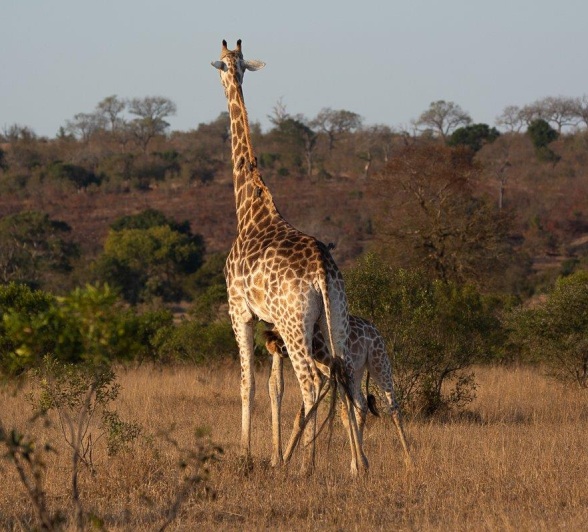
Impalas are cautious drinkers. When they approach water sources, they are highly alert to potential threats. They often take quick sips and lift their heads frequently to check for predators, particularly crocodiles, lions, and leopards, which are known to ambush prey at waterholes.
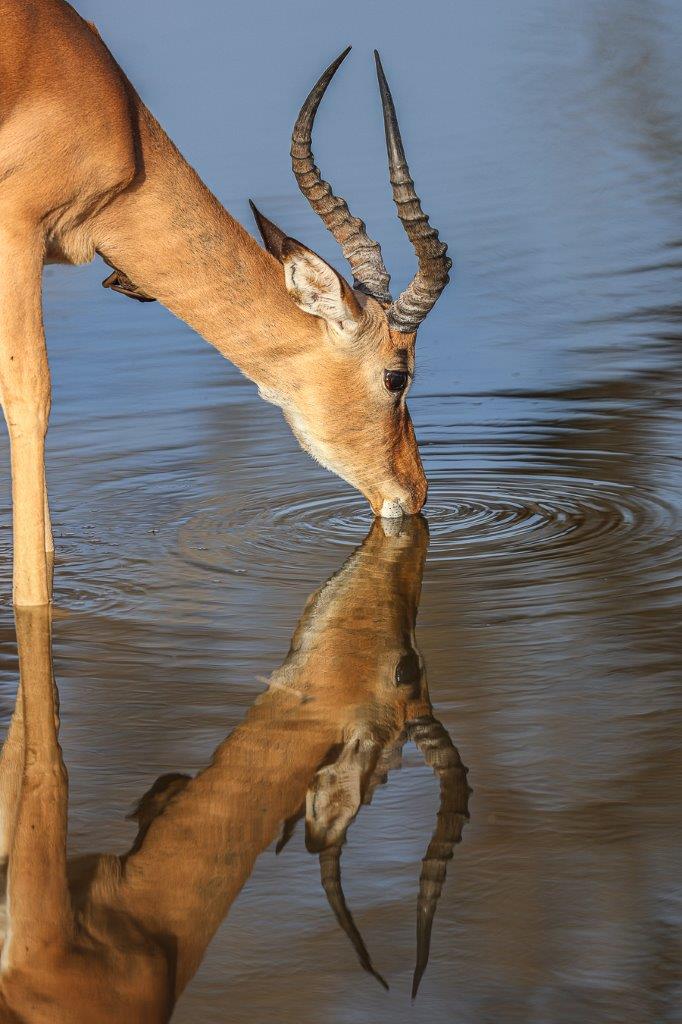
On a hot day, waterholes are often a great place to just go and sit around. We drove to a nearby waterhole to see what we could find. We were rewarded as rhinos approached to quench their thirst. As if that wasn't enough, a couple of hyenas came in as well, straight into the water to cool down. This startled the rhinos at first, but they relaxed after realising the hyenas were not attacking them but just sharing the precious commodity – water.
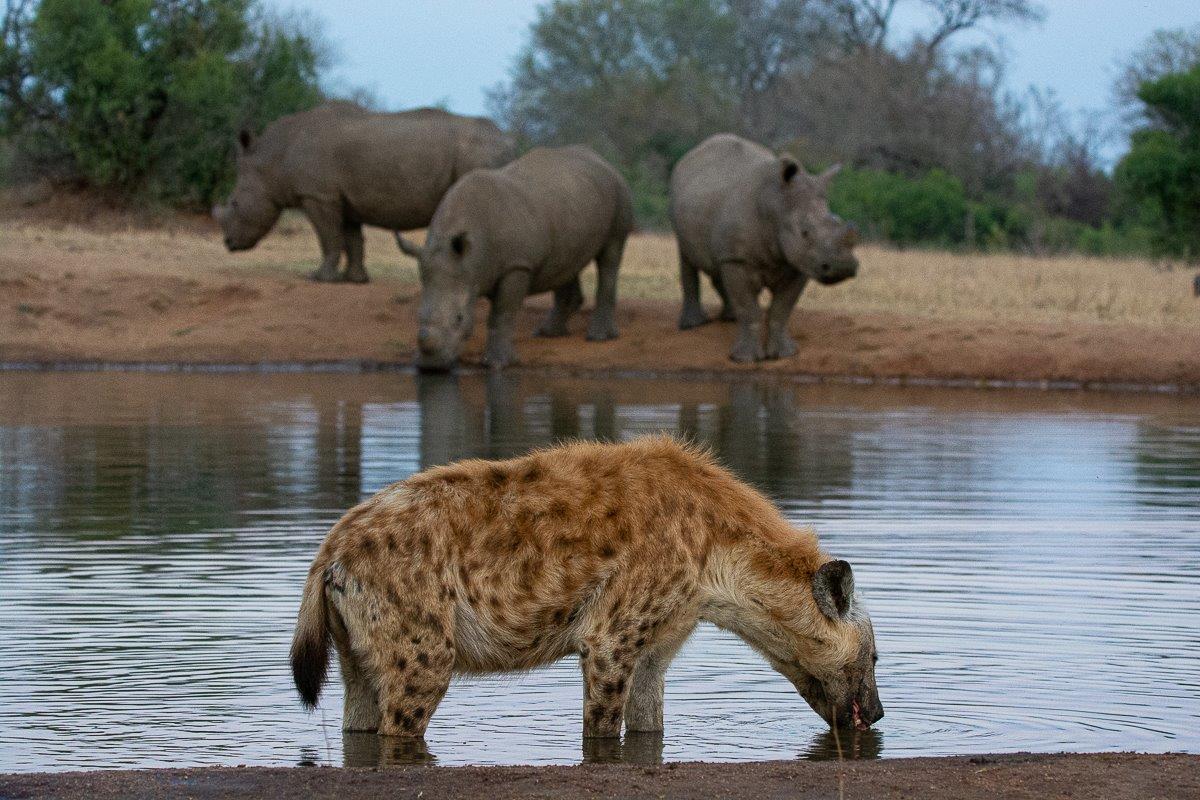
A large male elephant used its immense strength to push down a Marula tree. After toppling the tree, the elephant indulged in its rich foliage for a while before continuing its journey.
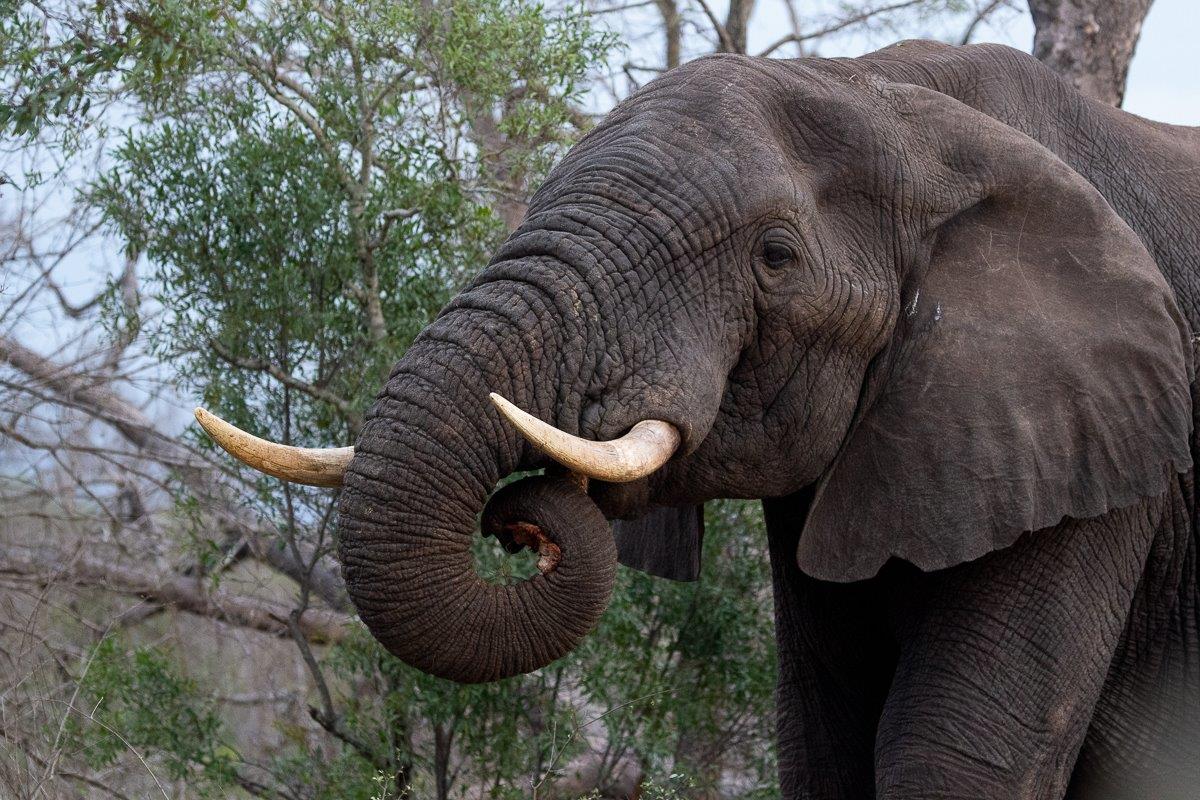
Normally shy and stealthy, this Nile Crocodile was feeling the heat of the day. To cool down, it opened its mouth, allowing air to pass over the fleshy membranes in its throat, which helps cool the blood.
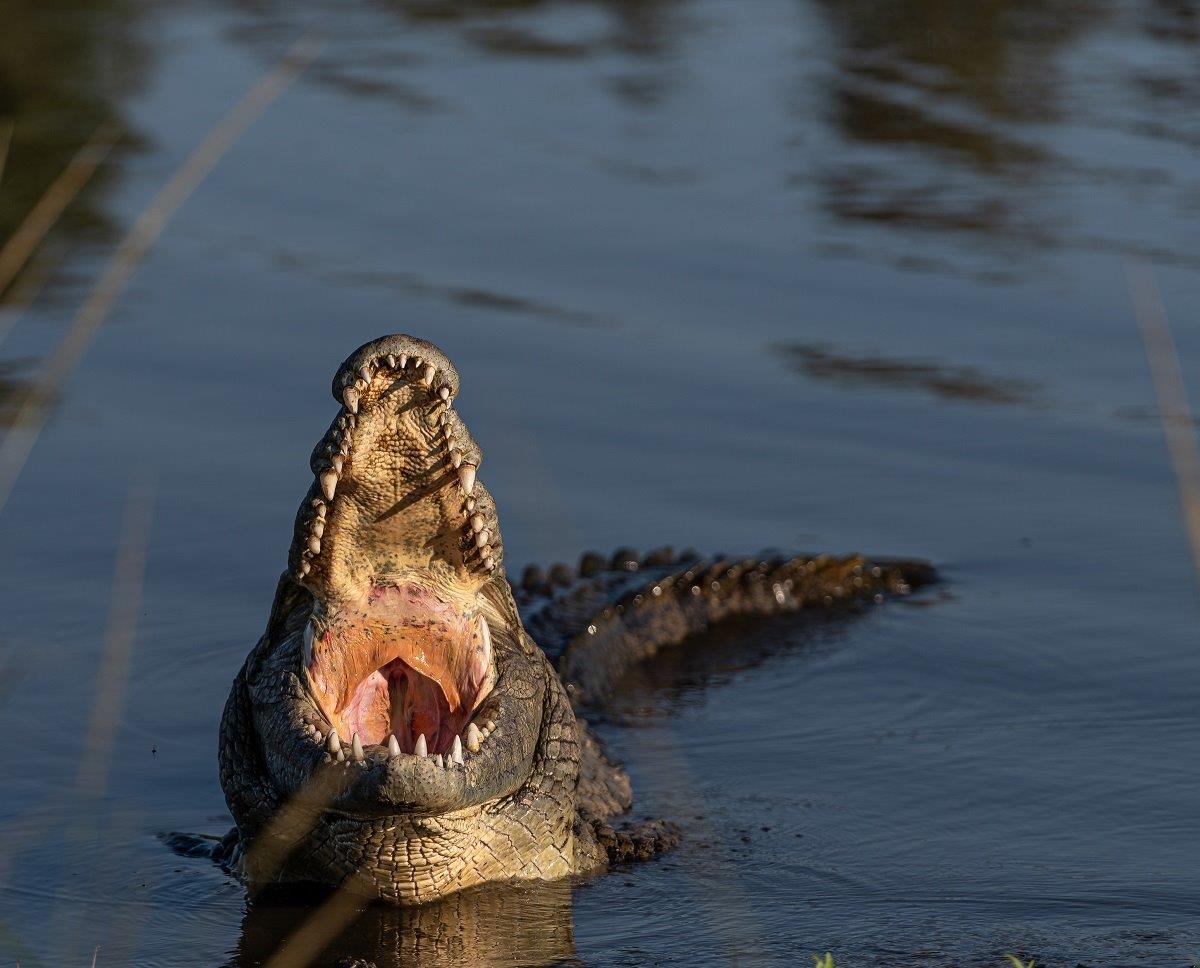
We came across a clan of hyenas in an open area, finishing off the remains of an elephant that had died in a riverbed. We stayed with them for a while and watched as they chased each other around, carrying bones and bits of skin.
Hyenas are scavengers that feed on anything from leftover carcasses to fresh kills made by other predators. Their role in the ecosystem is essential, as they help clean up carcasses.
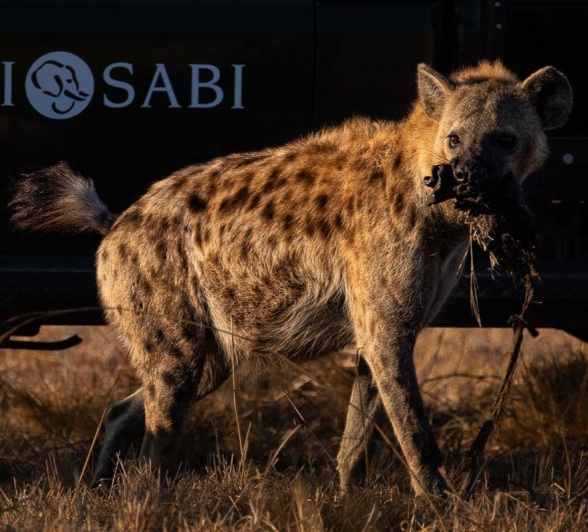
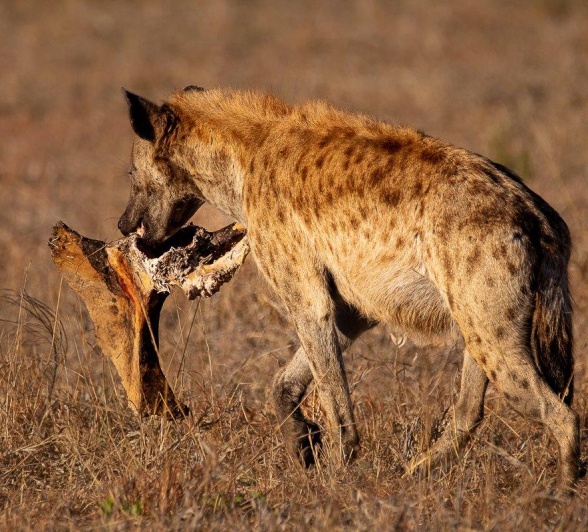
Until next time…
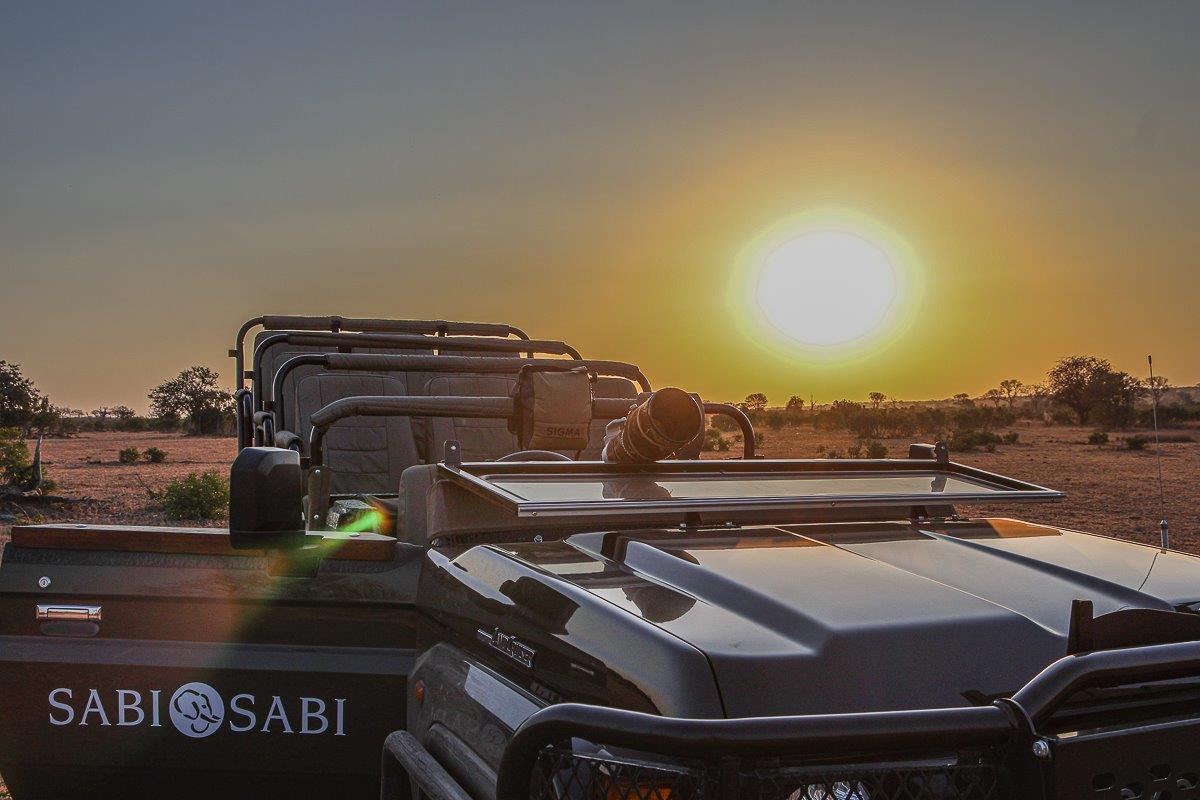
Blog by Wendy Claase
Images by Jamiel Malherbe, JP van Rooyen, Ronald Mutero and Ruan Mey







